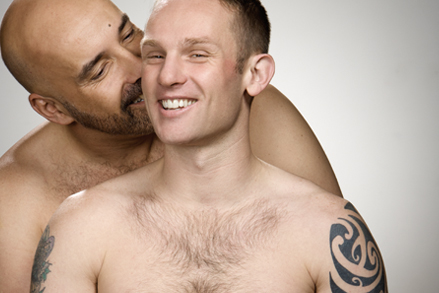
Forming Relationships
Relationships can be a safe place where we exchange support, love and intimacy. They can also be hard work. For some men, the HIV status of their partner is just not an issue; for others it is an important factor.
A relationship where your partner is HIV negative has its own unique set of challenges. Initially, there is the issue of disclosing. This may bring up a number of concerns for you both. The fear of transmitting HIV is the obvious one and both of you need to be confident about safe sex guidelines and how you are going to adhere to them. You should both be aware of Post-Exposure Prophylaxis (PEP), which is a 4-week course of anti-HIV medication your partner can take if he is ever accidentally exposed to HIV (see our PEP page).
Often positive men say that their negative partners are significant sources of support, while others find they need to act as their negative partner’s counsellor and educator. Either way, it’s important both you and your partner receive support from outside the relationship. Friends, counsellors, and negative or positive support groups have proved helpful to many couples.
Increasing your understanding about the relationship between viral load levels and the risk of HIV transmission is a good idea for guys in positive-negative relationships. We cover this issue in more detail in our Viral Load and Transmission – “The Swiss Statement” page.
There may come a time when you need to renegotiate your relationship boundaries in relation to sex. Many couples have introduced creative solutions to satisfy both parties. Is the ongoing relationship more important than being sexually monogamous? If so, then seeking sexual outlets outside the relationship may be the answer.
For men in open relationships, understanding how to avoid or reduce risks of other sexually transmissible infections is important, including for positive-positive relationships (especially if one or both guys have compromised immune systems). Some guys make agreements about how to manage such risks (see our STIs page).
There has been an increase in reports of sexual transmission of hepatitis C between HIV-positive men. It’s a good idea to discuss hepatitis C status and testing if your partner is also HIV positive.


